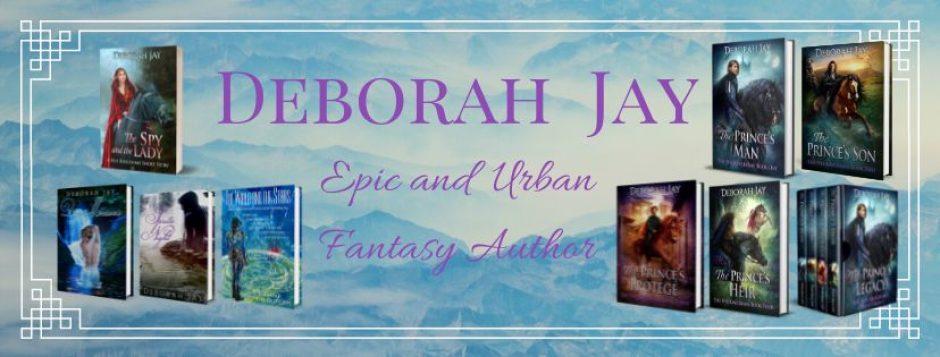For a number of years now, the author newsletter has been touted as the most important piece of unpaid marketing we can do for our books.
I’m interested to know how many of you have a newsletter, how often you send, and if you really feel it’s worthwhile.
I do have a newsletter, but with the new changes in requirements for deliverability, (see David Gaughran’s post about this) it’s now a requirement to have your own domain, and to have it verified.
I use Mailchimp for my newsletter, and it simply tells me that my own, paid for, professional email address, is unverifiable. I’m expect I will work it out in the end, I’m just wondering if it’s really worth the time I shall need to spend on it.
Is a newsletter free marketing?
Well yes, and no. Especially now.
It’s certainly free, in terms of content and sending to a mailing list. You write your own content, and press ‘send’.
I’m still under the threshold (less than 1000 subscribers – I regulary prune it to remove subscribers who don’t open mailings) on Mailchimp, whereby they host my list for free. This has the drawback that you can’t access any technical assistance – hence my current problem.
And even if that portion is free, I now pay a monthly fee for for my own domain/email address – the very address Mailchimp refuses to verify.
So no, it isn’t free, and it’s only going to get more pricey as I add subscribers and have to go onto a paid plan.
But it’s free to add subscribers, isn’t it?
Again, yes and no. Go above a certain threshold number and you have to take a paid plan. Fair enough – newlsetter suppliers have to make money somewhere.
I have sign up links in the back of my books, so readers can join my mailing list if they really enjoy the books. With, of course, the enticement of a free short story and other exclusive benefits for doing so. These are the subscribers I want – those who are genuinely invested in my work.
You can join other authors in newlsetter promotions, where you all promote each other’s free books that new readers can only get by signing up to your newsletter. But does this bring in the sort of sign ups that you want? How many readers take the freebie and then unsubscribe? I know I’m guilty of this unless I particularly enjoy an author’s books. This, then, raises your number of subscribers, pushing you towards, or into, that paid bracket, but doesn’t necessarily bring you new sales.
And then there are the paid ‘newlsetter exploding promotions’, where you pay to join a promo that does exactly what you can do for free (or very cheaply) , by joining up with other authors on sites such as Bookfunnel and Story Origin, to name just a couple. In the early days of the pressure to ‘build your newlsetter’, I did a few of these. But although the numbers of new subscribers are great, it’s back to the question of ‘are they quality subscribers’, who will buy more of your books?
I have learned to do these promos only to tightly targeted audiences, so the quality of my subscribers is rising.
How often do you send newsletters?
Alongside the verification issue, this was the other thing that prompted this post.
Those of you who have followed me for a while will know that last year I went on a binge-read of cozy mysteries, taking all the free offerings I could to sift through and discover the handful that I actually wanted to continue reading (not many, believe me). This meant that I have been signed up to oodles of author newlsetters, which has been an education of itself.
Personally, not being a quick writer, I release, at best, one book a year, and often less, I don’t send newsletters very often.
I try to do once a month, but rarely achieve that. I don’t want to clog up reader’s mailboxes, I just want to stay on their radar enough that when I DO have a new release, I can let them know. I struggle to find enough of interest to put in my infrequent newsletter – a little information about me, about my books, sometimes promoting another author’s book/s, and always including a selection of freebies, so I’ve offered them something in return for staying with me.
But these cozy mystery authors? Some send daily.
DAILY!
Guaranteed to make me unsubscribe unless they have anything amazing to tell me. I get information on their lives, their children (sorry, not interested), on their pets (a little more interesting), and, of course, their new releases. Cozys are much shorter books than I write, and many of these ladies are obviously full time writers, so multiple releases in a year.
But even so: daily newsletters?
So, to wrap up my ramblings
I also use Mailchimp to send newsletters to my equestrian clients when I have an upcoming clinic in their area, to invite bookings for training sessions. Because of my problem with being unable to achieve verification, Mailchimp has sent my most recent mailings from an address they have allocated me. All well and good, I thought. Last month this worked just fine.
But this month, I sent out the mailing and heard nothing back.
Nothing!
Bear in mind, this is how I earn most of my living.
So I tentatively messaged a couple of regular clients via Messenger, only to discover they had replied, but the replies had not been forwarded to me!
I have resent the mailing, asking clients to please use Messenger, text, or the email address I have supplied in the body of the text. Which is so not the point of using this service.
SO please share your opinions on newletters.
Do you have one? If so, how often do you send it? How worthwhile do you think it is?
Have you had any issues with the new compliance?
I’m really interested to hear from you on this subject…



























We are so in sync on this issue, Deborah, it’s scary. I just went through the same thing (and will discuss it in my Story Empire posting next month). I use AWeber (switched from MailChimp), but all the same problems. I have a branded email account through Google Workspace that looks like it belongs to my domain but is through them. I couldn’t get that to work or any other option. My small writer’s newsletter didn’t have a problem (about 500 subscribers), but my big education newsletter (on a paid account with AWeber) wouldn’t work. I didn’t want the cost of yet another email address for yet another yearly fee so had about decided to ditch the newsletter. I called AWeber on another issue, whined about the newsletter issue, and they fixed it in a snap with my branded email. All good, works fine. I’m stunned.
As for frequency: My writer email is once every two months. My ed newsletter is once a week.
So, that’s my story! I love HEA endings, don’t you?
LikeLiked by 1 person
That’s great to know they fixed it for you. I have an address with Titan, which is this WordPress blog account. I’ve found instructions on how to make it verifiable, but haven’t gone through the rather technical process yet. I’m worried I might screw up my blog if I get it wrong!
LikeLiked by 1 person
I know what you mean. I was about to buy an email with GoDaddy, hire someone (because I’m sure I would mess up my blog) to switch the email address from Google to GoDaddy, and then brace for problems!
LikeLiked by 1 person
🤣🙄
LikeLiked by 1 person
I’ve been off and on about creating a newsletter but it just seems more work then I need right now. I find the newsletters I have signed up to have the same info as the blogs I follow. I don’t have time to read everything once let alone twice! I think I will not bother, especially now with the new rules.
LikeLiked by 2 people
Interesting. Thanks for sharing your thoughts. I think it’s useful to have a newsletter, to connect with those who don’t follow blogs, but that’s just one aspect of connecting with readers. I am conflicted about it, because I rarely have news to share.
LikeLiked by 1 person
Deborah, I hear your comments from several other writers/authors. The author newsletters boom that was so hot some years ago seems to have died down considerably. Readers just aren’t interested in that form any more. I’ve heard from many authors who are now abandoning the newsletter. I have a blog/website on WordPresss (the free WP) for over ten years. The reason I prefer the blog is because the blog page is my landing page for my website and that gets a lot of SEO to attract blog followers and visitors. I originally posted weekly for about 5 years, now I post twice a month. Direct blog followers are near 400 but I get an average of 40 to 60 new visitors a day (some days 150 to 200 visitors) and that is high exposure for my blog, my books, and my writing. I think it’s an important asset for an author to keep building new readership. I use lots of keywords, tags, and categories on my blog posts, so the SEO goes a long way for the blog to come up on word searches. Of course, blog content is key. Good luck with whatever you decide to do!
LikeLiked by 2 people
Thanks Paula, that is very interesting that you know of authors abandoning their newsletters. I still think they can be a great way to reach existing fans when you have a new release, but I think I might use it only then, even if they HAVE forgotten who I am in the meantime. I don’t have time to read other author’s newsletters unless they tell me about something I want to buy – I’m not interested in their kids/pets/holidays, so I don’t really see why anyone should be interested in mine!
LikeLiked by 1 person
I don’t read newsletters, Deborah. I just don’t have the time. I had a newsletter and was as bad about sending them out as I was about reading them. After two years of thinking I might knuckle under and start it up, I realized that I was fooling myself, and I cancelled it. That probably doesn’t answer your questions, but there it is. 🙂
LikeLiked by 1 person
Thanks for sharing that Diana, I’m pleased I do have my newsletter up and running with a nice welcome sequence that gives away a couple of freebies, but I really think I shall only use it for important news from now on. It takes up too much time if I’m just sending out nothing of import!
LikeLiked by 1 person